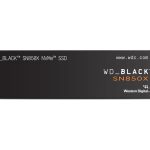When you buy through our links, we may earn money from our affiliate partners. Learn more.
Alyssa Powell/Business Insider
- Whether you want to read some literary classics in their original language or speak to family in their native tongue, learning Russian is worth the work of memorizing a new alphabet.
- Below are 10 free or cheap online courses, apps, books, videos, and resources to help you learn how to speak, listen, read, and write in Russian.
- Read more: If you want to learn American Sign Language, here are 10 free or cheap online courses, apps, books, and resources to start with
- Sign up for Insider Reviews’ weekly newsletter for more buying advice and great deals.
During the pandemic, many people are using the extra time at home to learn a new language (or brush up on an old one).
If you’re interested in learning Russian, there are two things you should consider. First, figure out what you are learning the language for. Do you want to be able to read “Anna Karenina” in its original language? Watch “Solaris” without captions? Speak to a loved one in their native language? Deciding which facet of the language you most want to focus on – writing, reading, listening, or speaking – will aid you in finding a curriculum and the best courses for your needs.
You should also prepare to learn a new alphabet. Russian uses Cyrillic, an alphabet system that tends to look deceptively like your standard ABCDs. For instance, the “H” letter in Russian actually makes an “N” sound, while a backwards “N” symbol ( “и”) makes an “eee” sound. Russian is also a gendered language, meaning nouns, verbs, and adjectives have to be in accordance with feminine, masculine, or neutral genders.
However, don’t get discouraged. Any challenges you might encounter are worth the work of opening yourself up to a wonderful language, steeped in a rich and storied history with over 258 million speakers worldwide.
With that, here are the 10 best online resources to kick off (or resume) your Russian-learning.
Here are 10 free or affordable online courses, apps, books, and videos to learn Russian:
goodpong / Getty Images
Price: Free
Length: 80 modules
Duolingo has a solid reputation for being a reliable language-learning application, and for good reason: its fun, gamified content still teaches you a lot. Each module focuses on a specific subject, ranging from places to common phrases. The more you advance, the more specific the modules grow. Another helpful facet of Duolingo is that it challenges you to practice everyday, offering incentives in the form of “XP points” which are a great way to track your progress and keep you practicing. All in all, it’s a great application if your focus is to learn the basics of how to read and write.
Price: Free
Length: Varies
If apps aren’t your thing and you prefer clicking around a website, this one is the best of the best. With 38 grammar modules, 18 phrase lessons, 16 quizzes, and plenty of games, this website offers enough resources to get you started. Beginning with the alphabet and general Russian sounds, you will be able to practice reading different phrases across a range of topics, ranging from family to school to countries and nationalities.
Price: Free with 7-day trial; $49 a month to keep learning after trial ends
Length: About 4 months (4 courses total)
Coursera courses are often offered by universities, which is helpful as you have the opportunity to hear real-life, practical diction. Most courses resemble ones you would take in a college-setting: that is to say, they offer quizzes, readings, and video instructions. Coursera courses are similar to Duolingo in the fact that there is little opportunity to practice your speech; the main difference between the two is that Coursera requires longer learning sessions, as each module takes around 1-2 hours to complete, while Duolingo is more short-term and can be used while on the go. Recognizing which method works best for you will help you decide between the two (although you can certainly do both in tandem!)
Price: $31.49 on Amazon
Length: 234 pages
Having a physical textbook can help immensely with your language learning, and “Sputnik” can act as a fantastic supplement to any one of the aforementioned apps. Written by Dr. Julia Rochtchina, who also developed the Russian For Everyone website, this textbook offers concise explanations for common grammar and vocabulary questions, and provides subsequent work problems. It’s also great if you’re looking for a screen-less learning option.
For speaking and listening
Bo Zaunders / Getty Images
Price: $20 a month (the more months you register for, the less it costs per month); there are some free modules as well
Length: Varies based on the class
Babbel has a voice recognition feature which helps it stand out from the other learning platforms on this list. While using it via the Babbel website, you have an option to vocalize words and get feedback on your pronunciation — it’s not as effective as speaking with another human being, of course, but it’s certainly a start and can help you pin down the Russian sounds that don’t exist in English. The module exercises resemble the ones found in Duolingo (i.e. matching Russian words to their English translations; matching Russian words to pictures), so if you like Duolingo’s structure but want more speech practice, Babbel might be a great fit.
Price: Free with 7-day trial; $14.99 a month to keep learning after trial ends
Length: Varies
Rosetta Stone is one of the oldest language-learning resources around, and its continued relevance is testimony to its merit. Rosetta Stone offers many resources in order to immerse you in Russian as you’re studying it: you’ll have phrasebooks, audio companions, and moduled courses as guides. What is most valuable about Rosetta Stone is that it offers live tutoring sessions where you can practice your speech and pronunciation. It’s an invaluable tool for truly learning Russian (though it does cost extra).
Price: Free
Length: Videos range from 2 minutes to 1 hour in length
Like learning a language through watching TV, these free YouTube videos are great in combination with some of the other courses listed in this article: for example, they can pair well with an app like Duolingo or Babbel, where there isn’t much verbal instruction going your way. The videos cover many different topics, from the alphabet to specific conversational phrases, and are great for getting accustomed to listening to the language.
For immersion and practice
WITGOAWAY / Getty Images
Price: Varies; starts at $6 per hour
Length: Varies
Humans are social creatures and there’s only so much learning we can do via applications, no matter how thought-out or accurate they are. This is why italki is such an invaluable app: speaking with a tutor will help you not only practice back-and-forth conversations, but get corrections on any pronunciation mistakes in real time. This can also help you key-in to cultural aspects of the language which, in focusing on grammar and vocabulary, applications gloss often over if not miss altogether. You can choose from a number of tutors to see who best fits your needs.
Price: Free
Length: Varies
Brainscapes’ flashcards will be ineffective if they’re the sole resource you choose: they offer no formal instruction, they simply provide already-made flashcards that are separated into helpful categories like colors and animals. These flashcards (separated into helpful categories like colors and animals) will help you if you’ve completed one of the aforementioned courses and feel confident in your reading skills and ability to learn new words. There is also a function that allows you to make your own flashcards to practice anything you feel needs reinforcement.
Price: Free with Netflix subscription
Length: 2 hours
Watching engaging Russian TV and movies can help you familiarize yourself with the language more quickly and naturally. “Dovlatov” (2018) from Russian director Aleksey German, Jr. is a nuanced portrayal of the life of Russian-Jewish writer Sergei Dovlatov during the 1970s. Not only is this film an excellent peek into Soviet-era Russia, but it also offers a great opportunity to exercise your ear. Watch the film with English subtitles when you’re just starting out to ensure that you catch the meaning of the speech — when you feel more confident in your reading, you can watch the film with Russian subtitles, which can help you match the spoken words to their written counterparts and vice versa.
The bottom line
Coursera
Russian is a complex yet rewarding language as well as a window to a rich culture. Whether your intention is to learn the basics or achieve fluency, it’s worth embarking on this linguistic journey.
Удачи! (Good luck!)
Powered by WPeMatico




